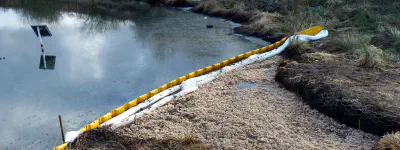Pond ecology and conservation: research priorities and knowledge gaps

Abstract
Ponds are among the most biodiverse and ecologically important freshwater habitats globally and may provide a significant opportunity to mitigate anthropogenic pressures and reverse the decline of aquatic biodiversity. Ponds also provide important contributions to society through the provision of ecosystem services. Despite the ecological and societal importance of ponds, freshwater research, policy, and conservation have historically focused on larger water bodies, with significant gaps remaining in our understanding and conservation of pond ecosystems. In May 2019, pond researchers and practitioners participated in a workshop to tackle several pond ecology, conservation, and management issues. Nine research themes and 30 research questions were identified during and following the workshop to address knowledge gaps around: (1) pond habitat definition; (2) global and long-term data availability; (3) anthropogenic stressors; (4) aquatic-terrestrial interactions; (5) succession and disturbance; (6) freshwater connectivity; (7) pond monitoring and technological advances; (8) socio-economic factors; and (9) conservation, management, and policy. Key areas for the future inclusion of ponds in environmental and conservation policy were also discussed. Addressing gaps in our fundamental understanding of pond ecosystems will facilitate more effective research-led conservation and management of pondscapes, their inclusion in environmental policy, support the sustainability of ecosystem services, and help address many of the global threats driving the decline in freshwater biodiversity.